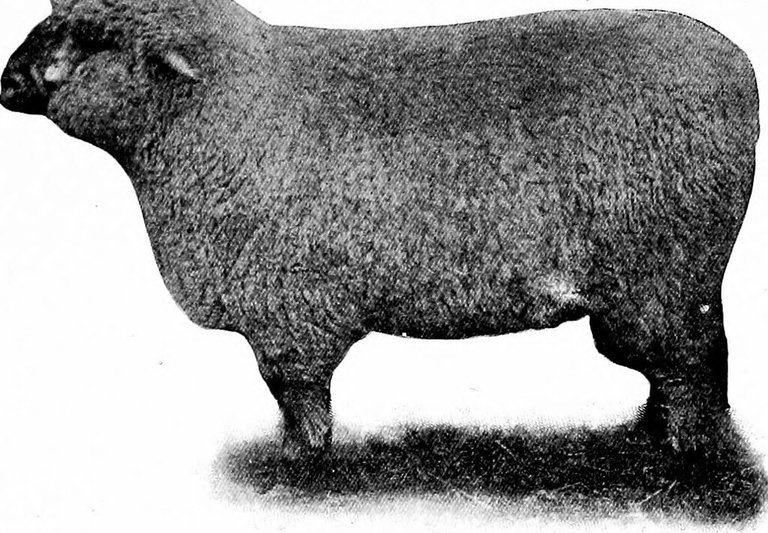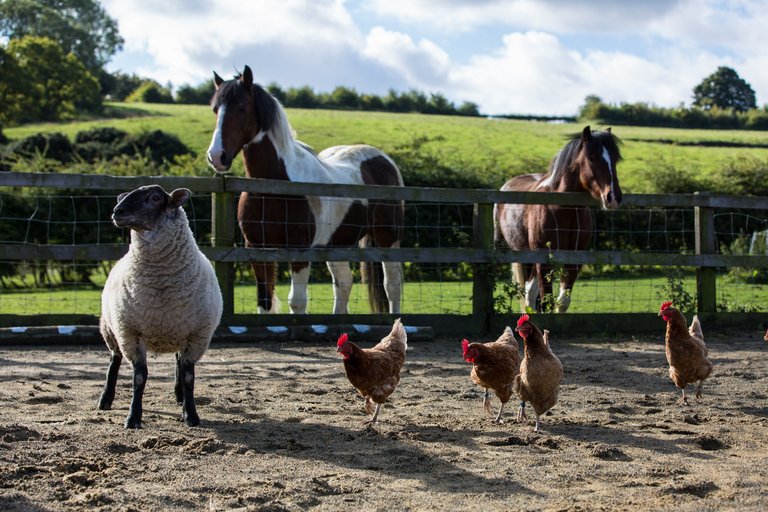Melioidosis; A Disease that affects a Wild Range of Animals
Hello friends, welcome again to my page, and I am excited to have you here as always. You already know that we focus on animals on this page, and the topic we will be considering today covers a wide range of animals, ranging from carnivores to rodents, cattle, sheep, goats, pigs, horses, and in rare cases even humans.
I will be discussing the topic, of melioidosis today, it is a grinder-like disease that is caused by Burkholderia pseudomallei. In domestic animals, the disease is often a chronic and progressive one with clinical signs that vary based on the location of the lesions. For sheep and goats, they may display signs of lameness, and even become paralyzed in the hindquarters.
Image credit
It is largely believed that the infection caused by B pseudomallei is an opportunistic one, and it is primarily because of the transmission coming from the environment, instead of the usual form of transmission that would come from animal to animal. The most common routes are; wound contamination, ingestion or inhalation of contaminated soil, water, or carcasses.
Some military personnel have been reported to pick up the disease through dust inhalation that has been stirred up by helicopters. It isn't just so easy to pick up the disease, there is most likely going to be another underlying condition like alcoholism or diabetes to lead to an increased susceptibility.

Image credit
Infection through the placenta has been reported in goats, and B pseudomallei can be transmitted during bleeding. There have also been reported cases of laboratory-acquired infection and iatrogenic infection through contaminated injections, antiseptics, or reported surgical equipment.
The clinical signs of melioidosis in animals vary greatly depending on the infection site. Swollen glands, anorexia, nasal discharge, recumbency, and fever may be noticed in an affected animal with the most affected organs being the spleen, liver, lungs, and associated lymph nodes. It is important to know that, the disease is rare amongst cattle.

Image credit
Infected animals are properly investigated bearing in mind the danger they could pose to a large number of humans, even if there is no documented case of zoonotic transmission of Burkholderia pseudomallei, the risk of transmission is considered low too.
Infected animals can spread bacteria potentially when there is contact with their nasal secretions, urine, feces, wounds, and milk. When an animal is infected, it is better to isolate them from other animals, move them away from properties, and follow good biosecurity and decontamination procedures after there has been contact with a known suspected or affected animal.
Some antibiotics can be used to treat cases of Melioidosis in animals, but on the other hand, they can be resistant to other forms of antibiotics. Before deciding to treat animals, make sure to go for a laboratory test for appropriate diagnosis and the prescription of the right antibiotics as well.
Treating an affected animal may be prolonged, expensive, and even possibly yield an unsuccessful result, with a risk of recrudescence after treatment has seized. Just like other diseases, it is better to focus on preventive measures than looking for treatments, and to make things worse, there is no effective vaccine yet for this purpose.
You can protect your animals by raising them off the soil, preventing exposure to muddy water, and ensuring that the water they are taking in is clean and treated appropriately.
References
bmcvetres.biomedcentral.com/articles
msdvetmanual.com/generalized-conditions/melioidosis
This is really a disease that needs to be looked into because it can destroy a whole lot of animals
True!! A wide range of animals can be affected if not handled correctly.
Thanks for your contribution to the STEMsocial community. Feel free to join us on discord to get to know the rest of us!
Please consider delegating to the @stemsocial account (85% of the curation rewards are returned).
Thanks for including @stemsocial as a beneficiary, which gives you stronger support.